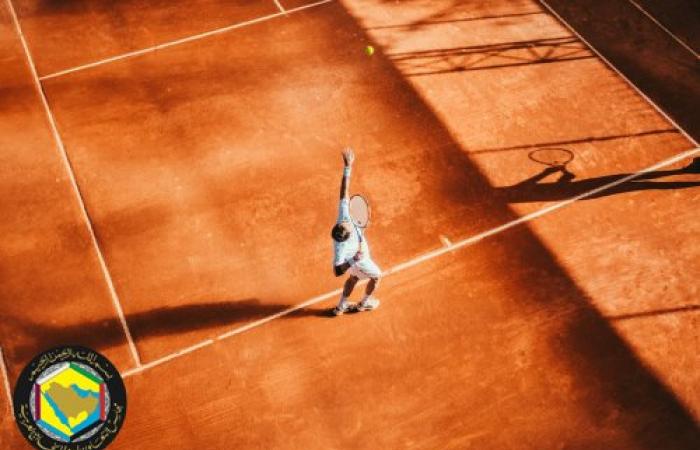In a groundbreaking development that reshapes the landscape of professional tennis, Saudi Arabia has been confirmed as the host nation for a brand new ATP Masters 1000 tournament, expected to debut in 2028. This historic announcement marks the first time the prestigious Masters series will expand beyond its traditional territories, signaling a new era for the sport and the Kingdom's ambitious sports diversification strategy.
A New Chapter in Tennis History
The Association of Tennis Professionals (ATP) has officially confirmed that Saudi Arabia will join the exclusive club of nations hosting Masters 1000 events, the sport's most prestigious tournaments below the Grand Slam level. This decision represents not only a geographical expansion but also a strategic evolution in global tennis governance. The move comes as part of Saudi Arabia's comprehensive Vision 2030 initiative, which aims to transform the Kingdom into a global sports and entertainment destination.
The ATP Masters 1000 series currently comprises nine tournaments held across North America, Europe, Asia, and South America. With Saudi Arabia's addition, the series will expand to ten events, marking the first such expansion in decades. This development underscores the ATP's commitment to globalizing the sport while tapping into emerging markets with significant growth potential.
Strategic Implications for Global Tennis
The introduction of a Masters tournament in Saudi Arabia carries profound implications for the global tennis calendar. Tournament organizers and ATP officials have been working diligently to identify the optimal scheduling window that minimizes disruption to the existing tour structure while maximizing player participation and fan engagement. Early indications suggest the tournament could be positioned in the early season or potentially fill a strategic gap in the autumn schedule.
This expansion also reflects the growing influence of Middle Eastern investment in global sports. Saudi Arabia has rapidly emerged as a major player in the international sports arena, having successfully hosted high-profile events across multiple disciplines including Formula One, professional golf, boxing, and football. The Kingdom's sports infrastructure development has been nothing short of remarkable, with state-of-the-art facilities that meet and often exceed international standards.
Economic and Cultural Impact
The economic implications of hosting an ATP Masters 1000 tournament are substantial. These events typically attract tens of thousands of spectators, generate significant media coverage across global markets, and create substantial economic activity through tourism, hospitality, and related services. For Saudi Arabia, this tournament represents another milestone in its efforts to diversify its economy beyond oil dependency.
From a cultural perspective, the tournament is expected to inspire a new generation of Saudi tennis enthusiasts and athletes. The Kingdom has been investing heavily in grassroots sports development, building tennis academies, and creating pathways for young athletes to pursue professional careers. Hosting a Masters tournament will provide unprecedented exposure to world-class tennis, potentially accelerating the development of local talent.
Infrastructure and Venue Development
While specific venue details have not been officially announced, Saudi Arabia has demonstrated its capability to construct world-class sports facilities rapidly. The tournament will likely feature a purpose-built or significantly upgraded tennis complex that meets ATP's stringent requirements for Masters events. These facilities typically include a main stadium with a capacity of at least 10,000 spectators, multiple practice courts, and comprehensive player amenities.
The Kingdom's track record in delivering major sporting infrastructure projects on ambitious timelines provides confidence in its ability to meet the 2028 target date. Recent examples include the Jeddah Corniche Circuit for Formula One and various football stadiums built for international competitions.
Player Perspectives and Participation
For professional tennis players, a new Masters 1000 event presents both opportunities and challenges. On one hand, it offers another chance to earn significant ranking points and prize money at the sport's highest level. Masters 1000 tournaments are mandatory events for top players, ensuring elite field participation. On the other hand, the addition of another major tournament to an already crowded calendar raises questions about player workload and injury risk management.
The ATP has emphasized its commitment to working with players and the players' council to ensure that calendar modifications are implemented thoughtfully, with player welfare remaining a top priority. Discussions about potential calendar restructuring, rest periods, and tournament obligations are ongoing.
Regional Tennis Development
Beyond the tournament itself, Saudi Arabia's investment in tennis is expected to have ripple effects throughout the Middle East region. Increased visibility for the sport, combined with substantial investment in development programs, could elevate tennis's profile across Arab nations. Regional tennis federations are already exploring collaborative opportunities to leverage this momentum.
The Kingdom has indicated its intention to use the Masters tournament as an anchor for broader tennis ecosystem development, including junior tournaments, coaching education programs, and partnerships with international tennis organizations. This holistic approach mirrors successful models implemented by other nations that have elevated their tennis profiles through major tournament hosting.
Challenges and Considerations
While the announcement has been met with enthusiasm from many quarters, it also raises important considerations. The ATP and Saudi organizers will need to address questions about player safety, fan experience in local climate conditions, and the integration of the new tournament into the global calendar without diminishing existing events.
Environmental sustainability is another critical consideration. Modern major sporting events face increasing scrutiny regarding their carbon footprint and environmental impact. Saudi Arabia has pledged to incorporate cutting-edge sustainable technologies and practices into its sports facilities, aligning with global best practices.
Looking Ahead to 2028
As preparations begin for the 2028 launch, all eyes will be on Saudi Arabia's ability to deliver a world-class tennis experience that meets the high standards associated with Masters 1000 tournaments. The Kingdom's substantial financial resources, combined with its demonstrated commitment to sports excellence, position it well to succeed.
For tennis fans worldwide, the addition of a new Masters tournament represents exciting new opportunities to experience elite tennis in a unique setting. For Saudi Arabia, it represents another significant achievement in its transformation into a global sports powerhouse. As 2028 approaches, the tennis world will be watching closely as this historic new chapter in the sport's evolution unfolds.
The Saudi Arabia ATP Masters tournament promises to be more than just another stop on the tennis calendar—it represents a bold vision for the sport's future, bridging cultures and expanding tennis's global reach in unprecedented ways.






